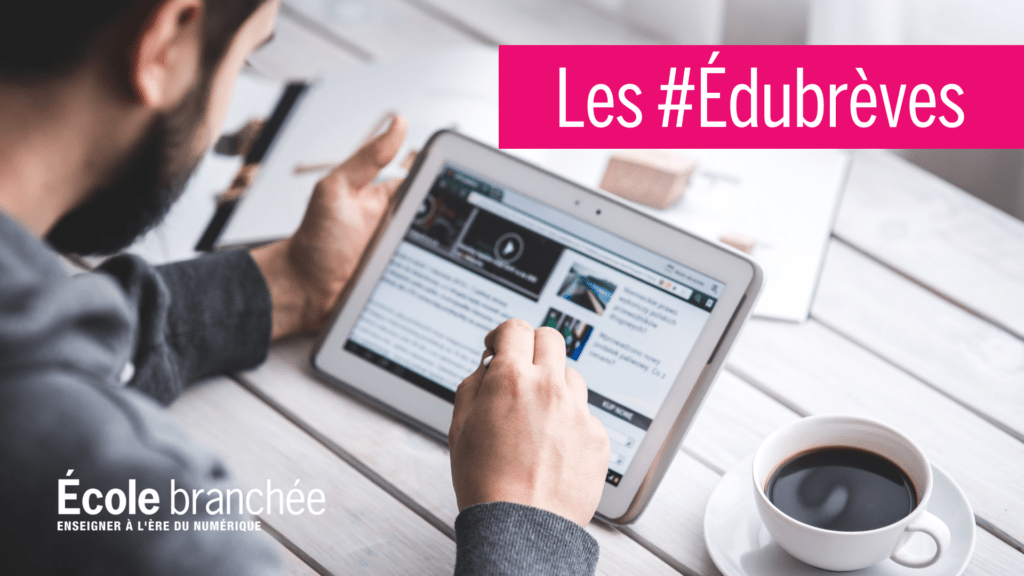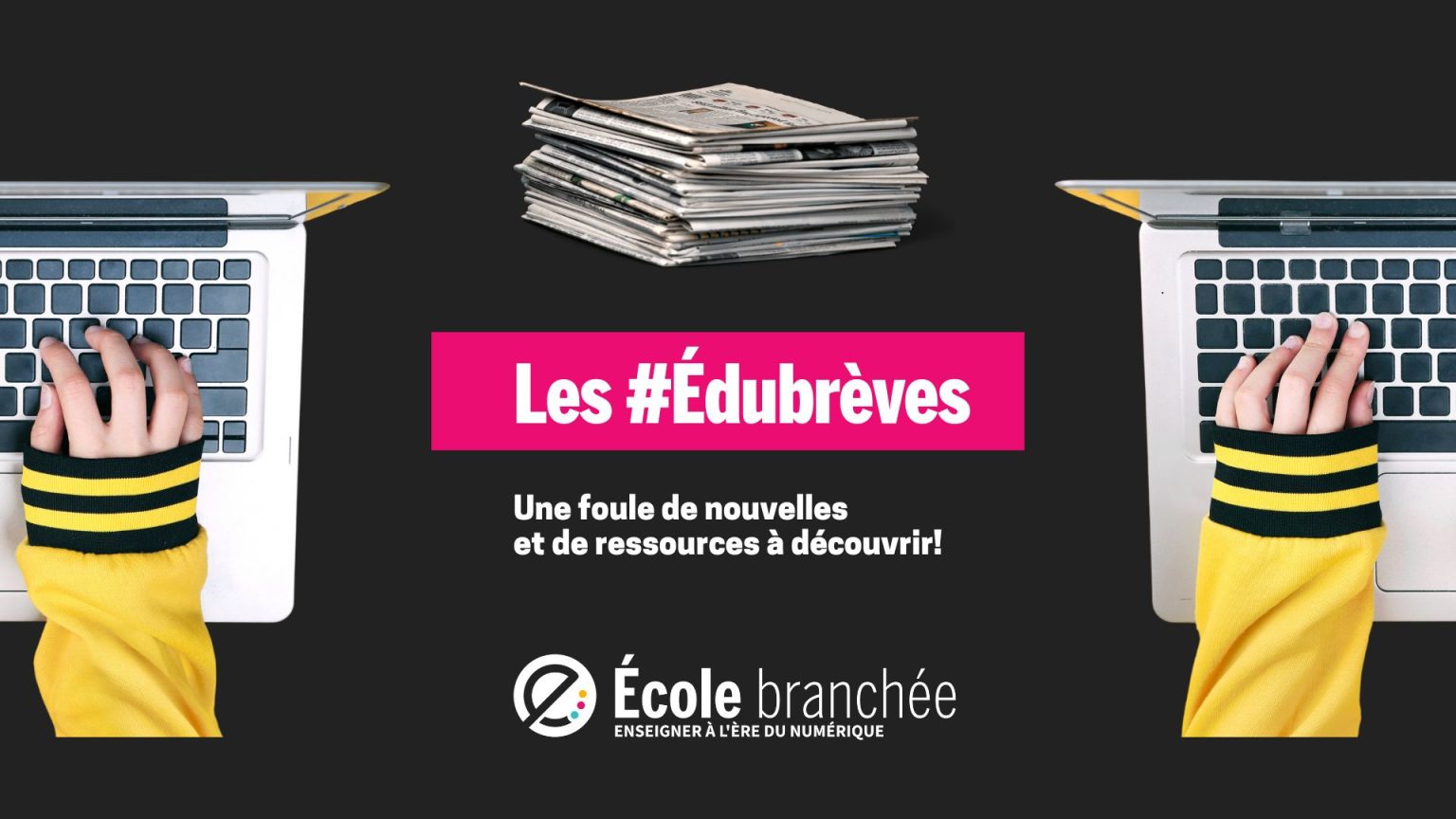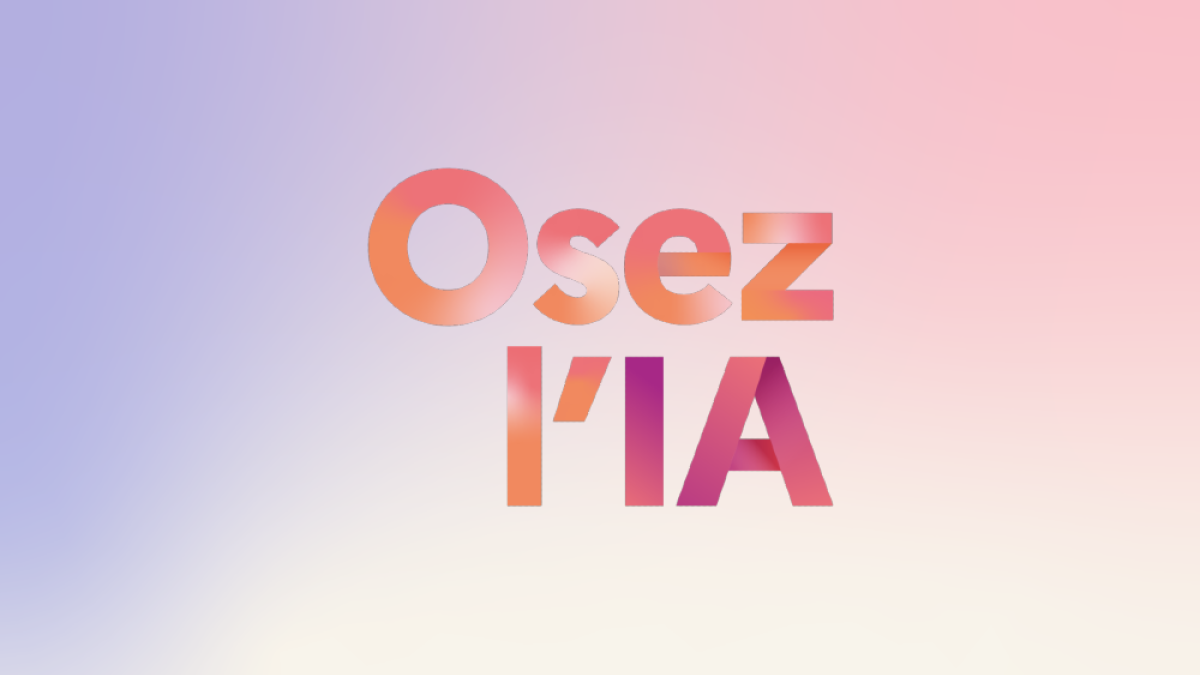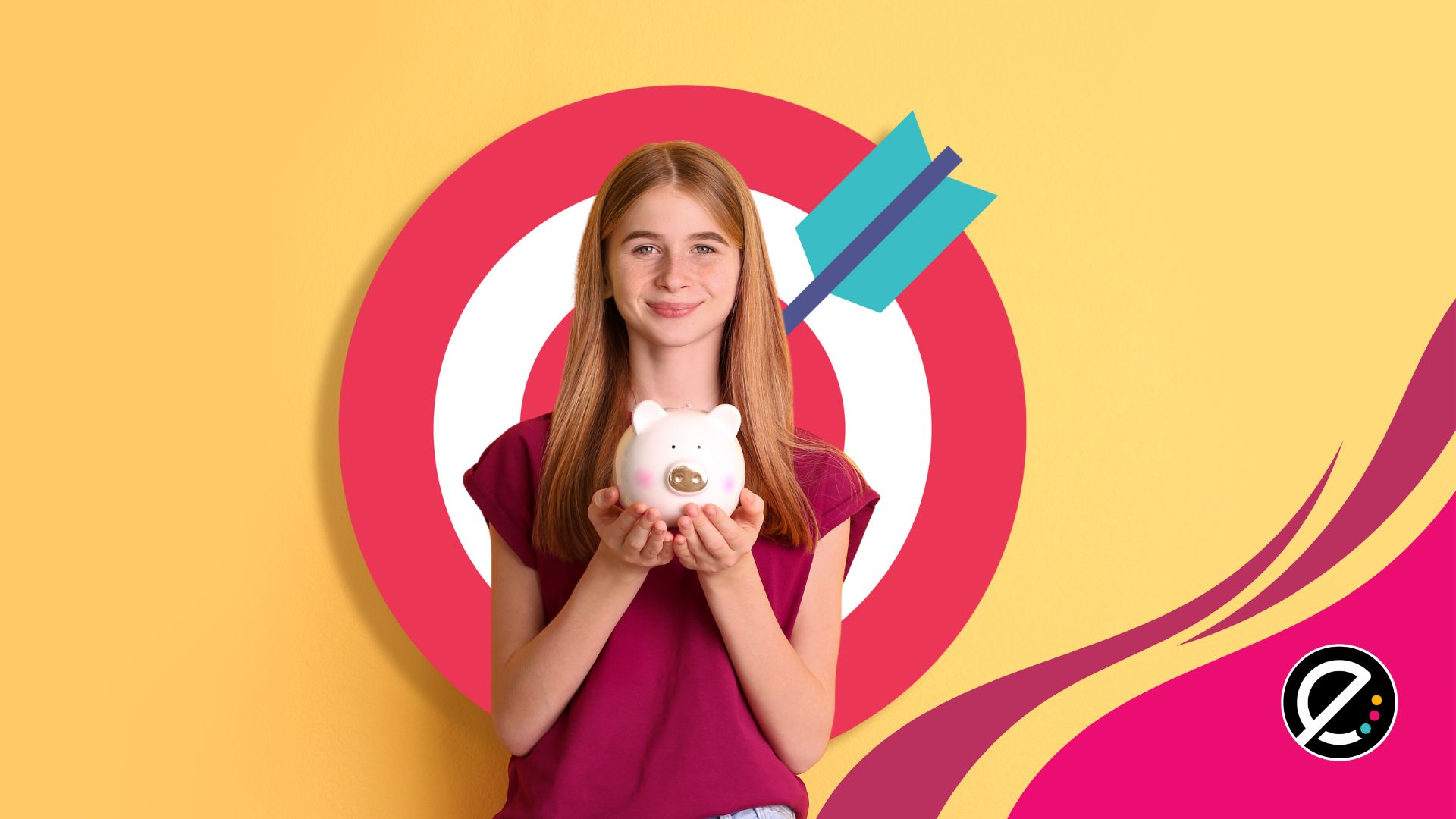La rentrée approche et nous reprenons du service. Voici vos #Édubrèves. N’hésitez pas à les partager ou à m’écrire si vous avez des nouvelles à faire circuler.

Dans cette édition : L’Institut d’été Kids Code Jeunesse, appel à projets en culture pour la santé mentale des jeunes, des projets interdisciplinaires à découvrir, un clavier pour aider les jeunes dyslexiques, la Charte pour l’éducation à la culture et à la citoyenneté numériques a été lancée en France et bien plus!
Bonne lecture.
Attention, l’usage de GIF animés dans ce condensé de nouvelles brèves est à des fins de divertissement seulement!
L’Institut d’été Kids Code Jeunesse arrive
L’Institut d’Été KCJ est une conférence virtuelle de trois jours proposant des ateliers et des webinaires bilingues pour soutenir la littératie numérique dans les classes de la maternelle au secondaire 5. Elle est entièrement gratuite pour tous les enseignants en service et en formation partout au Canada.
Du 16 au 18 août.
Inscrivez-vous maintenant: http://ow.ly/cTvs50JCSh4
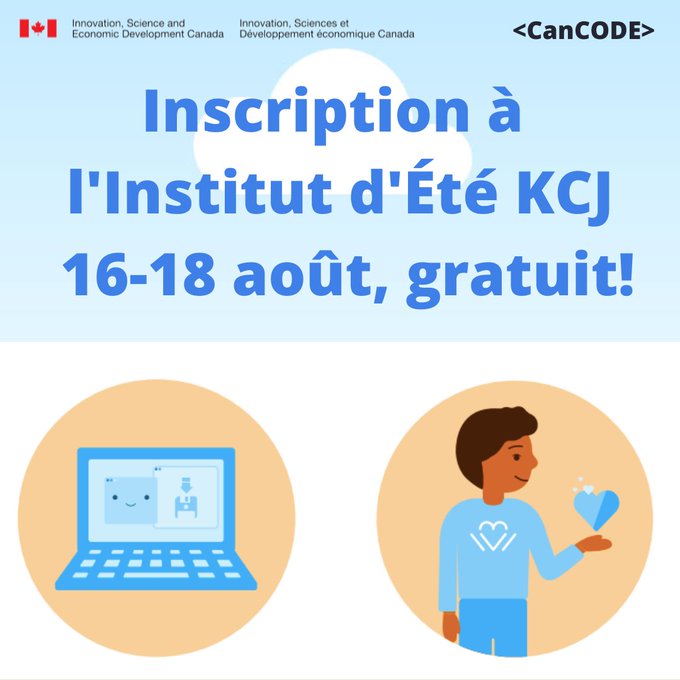
Appel de projets en culture pour la santé mentale des jeunes
L’appel de projets en culture pour la santé mentale des jeunes de 12 à 18 ans est prolongé au 23 septembre 2022. Celui-ci vise à :
- accroître le nombre d’initiatives culturelles régionales destinées à avoir un effet positif sur la santé mentale des jeunes de 12 à 18 ans;
- augmenter le nombre de personnes de 12 à 18 ans participant à des activités culturelles qui ont un effet positif sur leur santé mentale;
- soutenir les organismes culturels et communautaires qui souhaitent mettre en œuvre des projets culturels visant l’amélioration de la santé mentale ou le maintien d’une bonne santé mentale chez les jeunes;
- favoriser la mobilisation régionale en culture et en santé mentale des jeunes par le soutien de projets concertés.
L’appel de projets est accessible aux :
- organismes inscrits au Répertoire culture-éducation;
- organismes culturels professionnels non inscrits au Répertoire culture-éducation;
- bibliothèques publiques;
- organismes communautaires.

En vrac
À découvrir
- Un projet interdisciplinaire à réaliser (secondaire) : Imaginer et concevoir une constellation en première secondaire.
- Sciences : Introduction à la technologie et aux machines outils
- Mathématiques : plans cartésiens, angles, nombres décimaux, échelles
- Arts : représentation imagée de la constellation
- Français : récit narratif et discours oral
- Ludicifier sa classe (primaire) : Donjon Nouvelle-France
- Jeu de rôle qui oblige à la collaboration et à la mise en scène de diverses compétences mathématiques, numériques (Minecraft), historiques et financières.
- Une exposition numérique sur la planète Mars conçue par les étudiants de première année de l’École des Mines de Saint-Étienne, en France.
À lire
- Un clavier pour aider les jeunes dyslexiques : un jeune lycéen français de 16 ans a inventé un accessoire de clavier pour aider les enfants dyslexiques. Il a mis au point une plaque semblable à un clavier, nommée KEYDYS, qui se divise en 8 zones colorées et qui vient simplement se coller sur chacune des touches. Cette répartition aide le cerveau à relier chaque lettre à une couleur précise pour aider à la localiser plus vite. Son invention est maintenant commercialisée.
- L’école alternative La Fermentière de Warwick dans le Centre-du-Québec : Celle-ci accueille 28 jeunes de 15 à 18 ans qui éprouvent des difficultés d’adaptation socioaffective et ont des retards d’apprentissage. À même le site de l’école, une étable abritant 70 vaches Jerseys sert à la fois à la production de lait et à la responsabilisation des adolescents. Outre l’école et l’étable, le site de La Fermentière intègre un bâtiment abritant des ateliers d’ébénisterie et une serre permettant aux adolescents de faire pousser des légumes.
- Un centre pour contrer le décrochage scolaire verra le jour à Kitcisakik : Un centre destiné à favoriser la persévérance scolaire verra bientôt le jour dans la communauté autochtone de Kitcisakik, où le taux de décrochage scolaire avoisine les 90 %. Un programme d’apprentissage à deux volets y sera mis en place : un pour les jeunes qui n’ont pas encore décroché officiellement, mais qui fréquentent l’école de façon sporadique, et un autre pour offrir des formations à de jeunes décrocheurs (ex. métiers de la construction). Une équipe de six intervenants agira en soutien aux jeunes.
- La robotique à la maternelle et les compétences du 21e siècle : quel rapport? : À travers des jeux de rôle et les problèmes de fonctionnement d’un petit robot qui stimule l’intérêt des enfants, une expérience a été menée auprès d’élèves du préscolaire à l’aide d’enseignantes qui, à leur tour, se sont mutuellement formées à la robotique et à la programmation. L’analyse des données et les rapports des enseignantes ont démontré que les élèves ont une attitude de plus en plus engagée à l’égard des problèmes à résoudre. De plus, il y a eu une évolution en termes d’engagement, du sens de l’écoute, du partage d’avis et plus particulièrement de la participation aux activités collaboratives.
Les jeunes du programme C-Vert Gatineau s’impliquent pour l’environnement
Pendant la saison estivale, les jeunes du programme parascolaire C-Vert mettent en œuvre plusieurs actions concrètes pour la santé de l’environnement à Gatineau. Le groupe C-Vert Gatineau, géré par l’organisme Enviro Éduc-Action, rassemble des jeunes âgés de 14 à 16 ans qui s’engagent notamment lors d’un stage d’été.
Les adolescents ont réalisé trois projets d’engagement citoyen cet été pour le bénéfice du Jardin urbain du Vieux-Gatineau, dans le quartier Notre-Dame :
● Plantation d’arbres et d’arbustes fruitiers sur le terrain du jardin, un ancien stationnement;
● Construction en bois d’un système de compost de jardin;
● Conception d’affiches de sensibilisation sur l’agriculture urbaine, le fonctionnement et les bénéfices du Jardin urbain du Vieux-Gatineau.
C-Vert est un programme parascolaire permettant à une quinzaine d’adolescents de développer leur leadership écocitoyen en plus d’en apprendre davantage sur les enjeux environnementaux locaux et globaux. Le stage C-Vert 2022 est possible grâce à la contribution et à l’appui de plusieurs partenaires tels que le Gouvernement du Québec, les YMCA du Québec, le Fonds vert de la Ville de Gatineau, Mathieu Lévesque – député de Chapleau (CAQ), la Campagne Vivre en vert – Gatineau gérée par le CREDDO, les Serres urbaines Notre-Dame et le Comité de vie de quartier du Vieux-Gatineau.
À mettre à l’agenda
En réaction à la publication des premières informations concernant le nouveau programme de Culture et citoyenneté québécoise (qui remplacera le cours d’Éthique et culture religieuse au Québec), le conseiller pédagogique et enseignant d’éthique Alexandre Chenette a décidé de proposer une série de 3 webinaires qui seront offerts gratuitement à la rentrée :
- Mercredi 14 septembre, 12h et 19h, « PENSÉE CRITIQUE | Je ne suis pas formé•e pour ça… »
- Mercredi 28 septembre, 12h et 19h, « SOCIO | Je ne suis pas formé•e pour ça… »
- Mercredi 26 octobre, 12h et 19h, « EDSEX | Je ne suis pas formé•e pour ça… »
L’objectif est notamment que chacun puisse se doter de bass de connaissances et être mieux outillé pour enseigner ce nouveau cours.
Les détails sur la page Facebook d’Alexandre.

En France : Lancement de la Charte pour l’éducation à la culture et à la citoyenneté numériques
La Charte pour l’éducation à la culture et à la citoyenneté numériques a été lancée cet été en France par la Direction du Numérique pour l’Éducation.
Le travail se poursuit maintenant en ateliers dans les locaux de la direction pour s’assurer de son appropriation par l’ensemble des acteurs de l’éducation.
La charte est lancée, le travail continue en ateliers pour s'assurer de son appropriation par l'ensemble des acteurs de l'éducation. pic.twitter.com/VGRQCv8Saq
— Éducation Numérique (@Edu_Num) July 19, 2022
Adaptation pour les #Dys
Dyscalculie, dyslexie, dyspraxie, trouble dysfonctionnel de l’attention avec ou sans hyperactivité (TDAH)… une série de petits signets a été conçue afin de donner des outils aux intervenants scolaires.
Source originale : https://www.dys-positif.fr/
En prévision de la rentrée, (re)lisez notre dossier sur les troubles dys.
Protection de l’enfance : le projet d’Open Digital Education
Open Digital Education, la société éditrice des espaces numériques de travail scolaires ONE et NEO, a conçu un bouton d’alerte pour les enfants victimes de violences. Le projet a remporté le prix Numérique Inclusif, Numérique Éducatif, remis lors de la journée « Edtech et Territoires : quels impacts pour quelles réalités ? », organisée par la Banque des Territoires avec Edtech France.
Le bouton d’appel à l’aide sera accessible directement depuis les espaces numériques de travail (ENT) scolaire. En l’utilisant, chaque élève sera guidé vers l’aide la plus adaptée à sa situation. Si l’établissement scolaire de l’élève a activé l’option “aide de proximité”, l’élève pourra contacter des personnes de confiance dans son établissement directement via la messagerie de l’ENT.
L’école est en première ligne pour sensibiliser aux violences et les détecter. C’est pourquoi Open Digital Education prévoit aussi un plan d’accompagnement pour l’ensemble des membres de la communauté éducative. Il comprendra des ressources et des conférences. Des rencontres en ligne seront aussi organisées pour les élèves et les familles.
En phase de conception, le dispositif sera testé cet automne dans les Hauts-de-France, avant d’être déployé dans l’ensemble des établissements scolaires de la région. À terme, le bouton pourrait être étendu à tous les espaces numériques de travail opérés par Open Digital Education et toucher plus de 3 millions d’élèves.
En terminant, profitez bien des derniers jours de vacances.

Si vous en voulez encore plus, vous pouvez (re)voir les #Édubrèves de la semaine dernière.
On se retrouve bientôt! N’hésitez pas d’ici là à nous « tagguer » (en bon français…) sur Twitter (@millaudrey ou @riomarti) pour que nous parlions de votre projet/ressource dans une prochaine revue de la semaine! Passez une excellente semaine.



